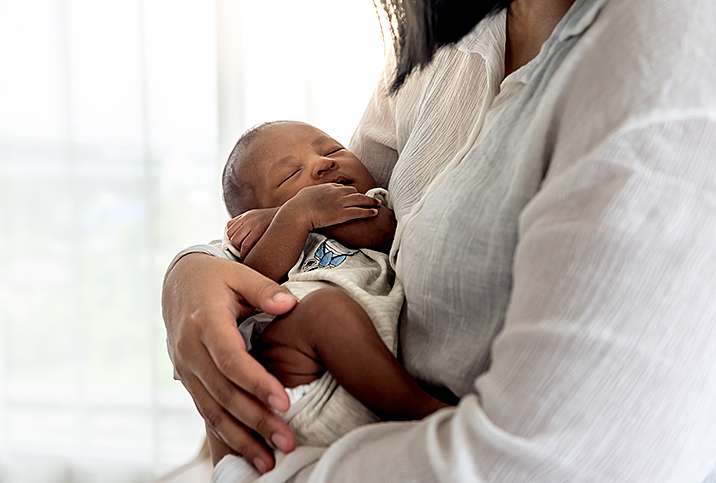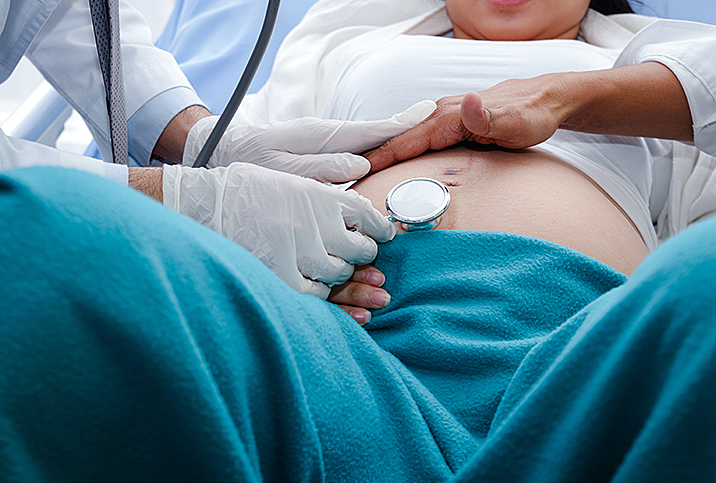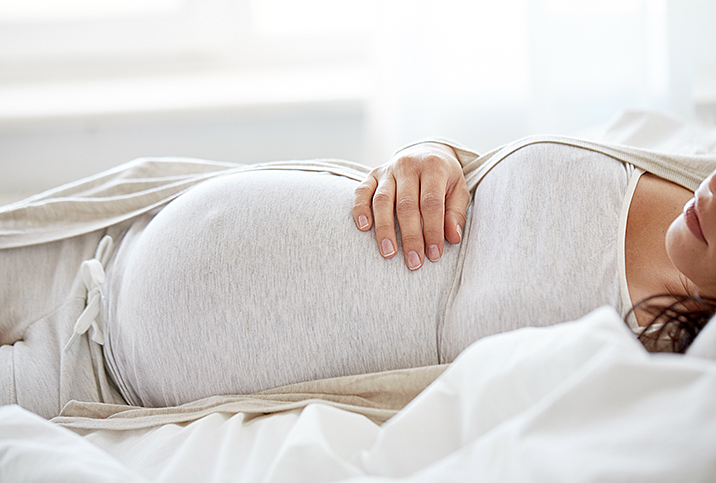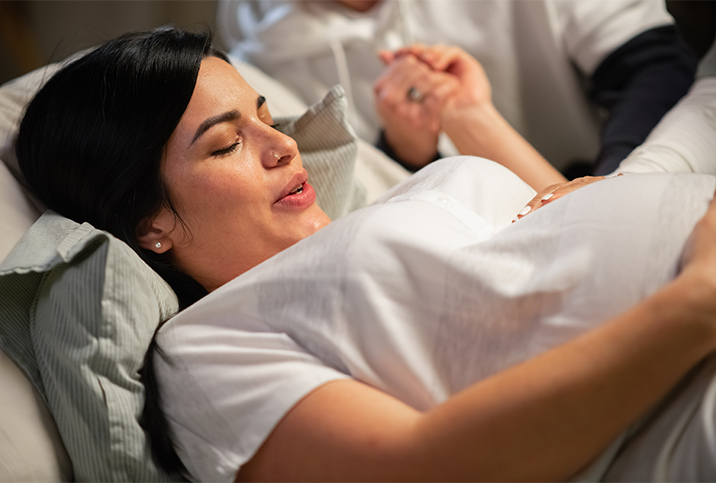Your Hospital Bag Checklist for Childbirth
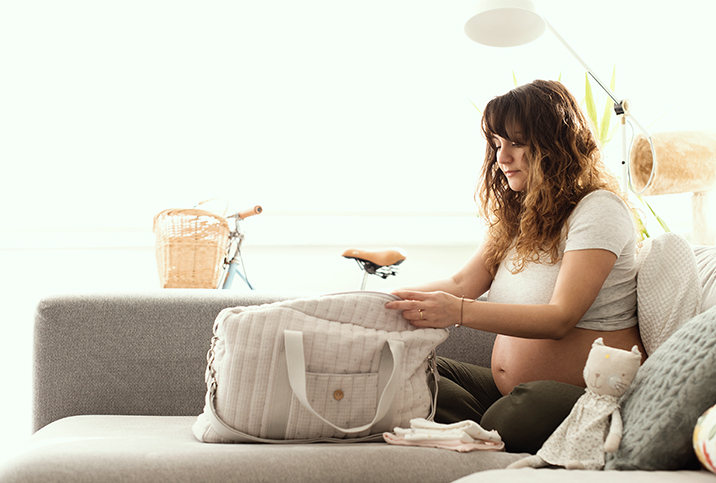
When approaching the end of pregnancy, it's important to start collecting and organizing the items you want to bring with you to the hospital when you go into labor. Since birth is an unpredictable event, you need to be ready to go well in advance of your due date.
We spoke to OB-GYNs and parents about what to bring—and what to leave at home—when you're packing your hospital "go bag" for the big day.
Keep it comfy cozy
Lexa Lemieux, of the Washington, D.C., area, spent over a month in the hospital leading up to the birth of her daughter. Her biggest tip? Come prepared for comfort.
Her suggestions included packing these items when you head to the hospital or birthing center:
- An extra-long charging cord
- Lip balm
- A robe, "especially if plus-size, because hospital gowns suck"
She also recommended bringing along a small amount of formula.
"Even if you plan to breastfeed, it may not happen and you want to be prepared," Lemieux said.
Cynthia Bernal, M.D., an OB-GYN at Orlando Health in Florida, echoed Lemieux's suggestion for items like a robe or other comfy clothes, such as pajamas or a lounge outfit.
"You are likely to be sore and healing, so choose loose-fitting clothing," Bernal said.
At the same time, she recommended limiting yourself to one or two outfits, which is sufficient for the duration of the stay for most patients. She discouraged bringing personal comfort items, such as your own pillow or blanket.
"Labor is a dirty, messy business and you don't want your nice things stained in blood or amniotic fluid," Bernal said.
The essentials for you and baby
Another vital item to pack is a car seat for the baby, Bernal said. The car seat isn't necessary while the birthing parent and baby are in the hospital, but it should be properly installed in the vehicle you will be driving home.
"You will not be allowed to take the baby home unless you have a properly installed car seat to secure your baby's ride home," Bernal warned.
For their own comfort, patients should pack their own toiletries. Yes, the hospital provides essentials, but as Bernal pointed out, those are not usually the best quality. Bring your own.
Consider bringing travel-size bottles of toiletries and anything else you think you'll need during your stay, such as:
- Shampoo
- Body wash
- Lotion
- Any additional toiletries you use daily
- Hair ties
- Nipple cream
- A nursing bra
Your partner's packing list
Another aspect to consider when packing your hospital bag is what your partner needs so they can support you during labor, delivery and postpartum time.
"They often don't have a sense of what is about to happen," said Sue Ellen Carpenter, M.D., an OB-GYN at Bloom Fertility in Atlanta, adding that partners should pack snacks and clothes they can sleep in. "Everyone says that you can't pack enough snacks. Prioritize your eating and drinking!"
Carpenter also suggested packing a few items that can help them (and you) pass the time:
- Magazines, a book or even a tablet for any downtime you experience, like during induced labor, which may take a day or two
- A charger for any electronics you bring
- A pair of earbuds or noise-canceling headphones if you're sensitive to noise
"People don't know about how noisy hospitals are and might want to think about that," she said.
Start your baby book
Another suggestion Carpenter had for birthing parents is to come prepared to compile and record all the information you're given. Bring a folder for all the informational packets and pamphlets you receive as an inpatient. Don't forget a pad of paper for keeping track of important information for both the birthing parent and the baby. That pad isn't of much use if you forget a pen to take note of events, such as when the baby last ate or had a dirty diaper, and your intake and output of fluids if you're trying to breastfeed, because hydration is an important factor.
Keeping track of this information while you're in the hospital also comes in handy later. When you're compiling a baby book weeks or months later, you'll have a record of those first hours and days all in one place.
What to leave at home
When considering the items you can leave at home, Bernal said don't worry about baby bottles, diapers and wipes. The hospital provides them along with items, such as maxi-pads and mesh underwear, that you need to care for yourself during recovery.
For the baby, Bernal recommended just bringing a coming-home outfit. You don't need any additional outfits because the baby wears hospital onesies for easy checks, she said.
When it comes to items the hospital provides, Lemieux suggested you "take everything that isn't nailed down when you leave."
Carpenter agreed with this sentiment and had a particularly savvy idea to share.
Take everything that isn't nailed down when you leave.'
"Bring an empty carry-on. Your medical staff will bring supplies to the room each day you are there," she said. "Fill the carry-on with your supplies after every shift, so the staff will replenish the supplies in the room. Take those home! You'll go home with diapers, disposable bottles, nipples and supplies that you won't have to buy."
These suggestions are a helpful guide to what's important when packing your labor and delivery bag. Do the best you can, but don't put too much pressure on yourself.
"Don't worry too much," Carpenter advised. "If you forget something, the hospital will take care of you."












